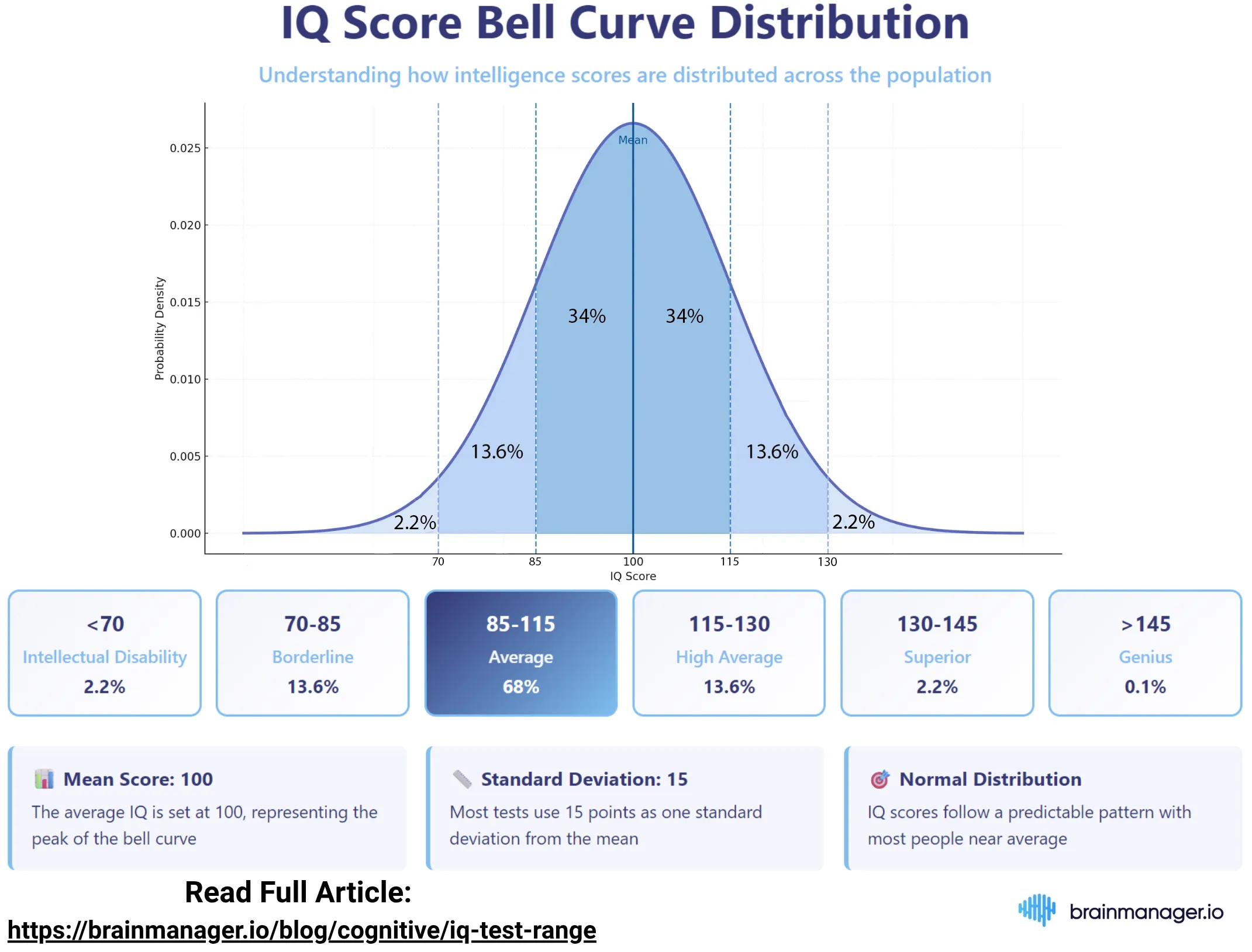Do I Have a Low IQ? How to Tell, What It Means, and Why It’s Not the Whole Story
IQ tests measure general intelligence, but there’s a lot they don’t capture. This guide breaks down what counts as a low IQ, how it shows up in daily life, and the myths that still shape how people are treated. If you've ever wondered what your IQ says about you—or worried it says too much—you're not alone.


Back
11 mins read
I was assigned to write this article about low IQ, and to be honest, it wasn't something I'd thought much about before. I’ve always done well on tests and even scored in the gifted range as a kid. But as I started researching, I stumbled onto some Quora threads—people asking raw, honest questions about their own intelligence scores and sharing their experiences.
“I am a twenty-year-old man with abnormal intelligence [sic]. My IQ has been measured at 79. I have not finished school. I am not educated. I have no academic degrees or training in any trades. I wanted to become a mathematical physicist, but I failed due to my inherent ineptitude for rational and exact thinking…”
“When I was 12 years old, I had to take an IQ test. I had the lowest score of the class with an IQ of just above 70. It was 71 or 72, I do not remember it exactly. As a result of the score, I had to attend one of the lowest levels of high school in my country... Well what is it like? I do not know in what way I am different. Teachers looked down upon me since kindergarten...
And that made me pause.
What does it really mean to be labeled with a low IQ? What does it do to someone’s confidence, their opportunities, or how others see them?
If you’ve ever felt like you don’t measure up—or that a number on a test might shape the rest of your life—you’re not alone. IQ, or Intelligence Quotient, is often seen as a measure of someone’s potential. But what does it really mean to have a high or low IQ?
While a high IQ is usually linked to quick thinking and strong problem-solving skills, a low IQ is associated with slower information processing and greater difficulty with complex reasoning. Maybe that’s why the people quoted above sound discouraged.
When society treats IQ as a predictor of success—whether for getting into a top university or landing a well-paying job—it’s easy to believe that a low score means you’ll always fall behind.
But here’s the truth: an IQ number doesn’t define who you are or what you can achieve.
In this article, we’ll break down what counts as a low IQ, signs that may indicate lower cognitive functioning, and the myths that often surround low intelligence. By the end, you’ll have a clearer sense of how IQ fits into the bigger picture—and why it’s never the whole story.
What Is Considered a Low IQ Level on IQ Tests?

To understand what counts as a low IQ, it helps to start with the idea of average intelligence. IQ testing is designed to measure cognitive ability, with a score of 100 considered average and representing the median level of functioning within the general population.
About 68% of people score between 85 and 115—this is one standard deviation above or below the mean. Scores around 115 are considered above average and are often linked to strong analytical thinking and problem-solving skills. This range makes up roughly 16% of the population.
On the flip side, a score around 85 is slightly below average. It may suggest some difficulty with cognitive tasks compared to peers, and this range also includes about 16% of people.
A low IQ is typically defined as a score below 70. This falls two standard deviations below the mean and represents about 2.5% of the population.
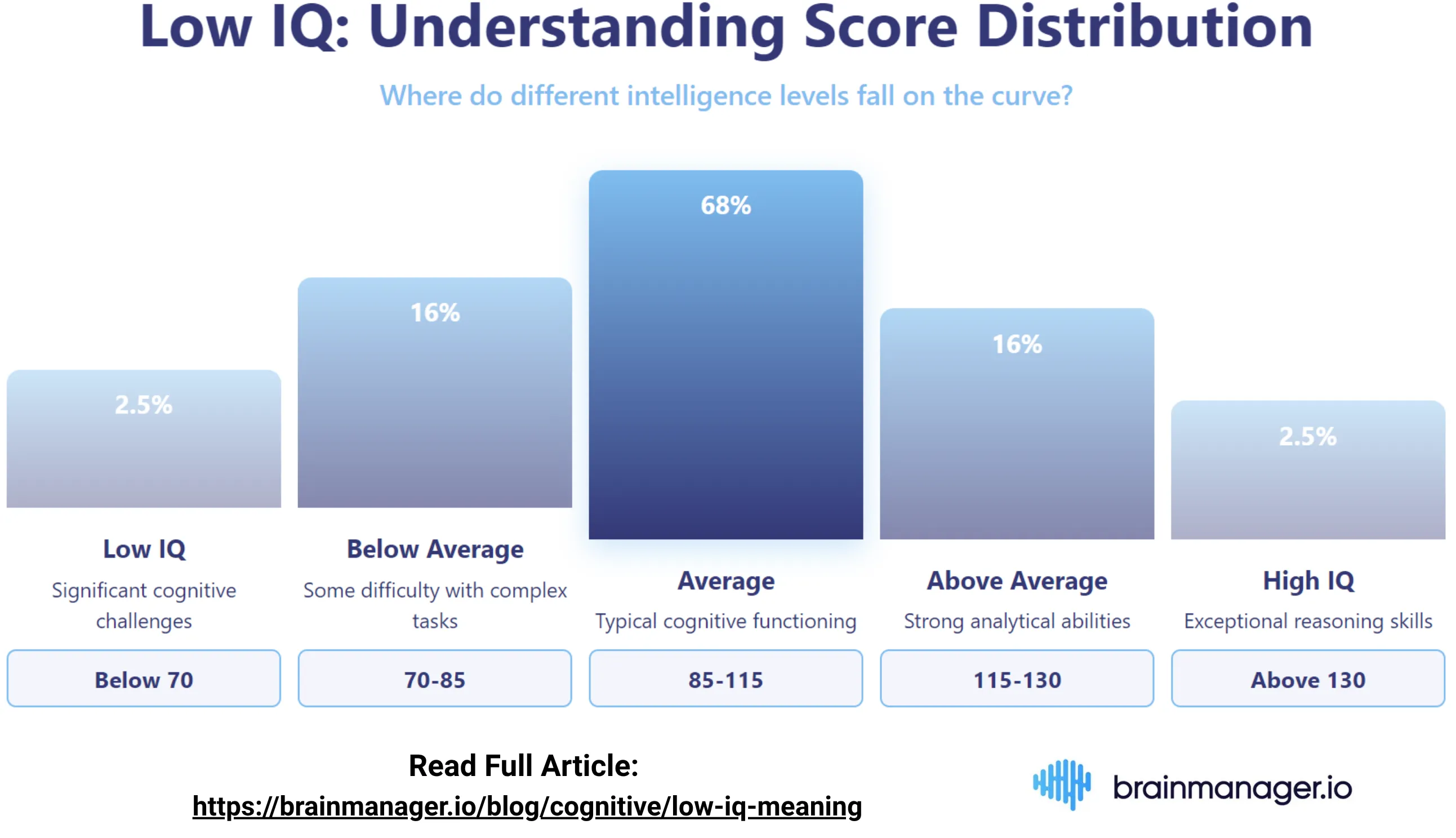
People in this range may experience more significant struggles with abstract thinking, logical reasoning, and processing information quickly. These challenges can impact school performance, work, and daily problem-solving tasks.
It’s also important to remember that IQ is interpreted in relation to age. IQ testing originally used the concept of mental age—comparing how someone performs relative to the typical ability level for their chronological age. A child’s results are evaluated differently from an adult’s, even if the scoring system is the same. Developmental stages can affect how cognitive ability shows up in real life.
Understanding the Ranges of Below-Average IQ Scores
Not all low IQ scores are the same. Within the range below 70, psychologists often break scores into smaller groupings to describe the degree of cognitive challenges.
- Borderline intellectual functioning: 70–79
- Mild intellectual disability: 55–69
- Moderate intellectual disability: 40–54
- Severe intellectual disability: 25–39
- Profound intellectual disability: Below 25
These categories are used for clinical and educational purposes, often to determine the type of support a person may need.
It’s also worth noting that historically, low IQ scores were used to make decisions that affected people’s rights and freedoms. In the past, these cutoffs played a role in institutionalization, placement in segregated "special education" classrooms, and even forced sterilization under eugenics laws.
In the U.S. legal system, a low IQ has also been used to determine whether someone is eligible for the death sentence, with courts using IQ scores to assess intellectual disability in capital punishment cases. While we've made great strides in understanding and supporting cognitive differences, the legacy of those practices still shapes how IQ is perceived today.
But what if you’ve never taken an IQ test—or took one years ago and still wonder what it really means?
In the next section, we’ll look at the kinds of challenges that can sometimes be linked to lower IQ scores and what those experiences might feel like in everyday life.
9 Low IQ Signs: Challenges Faced By People with Below-Average IQ
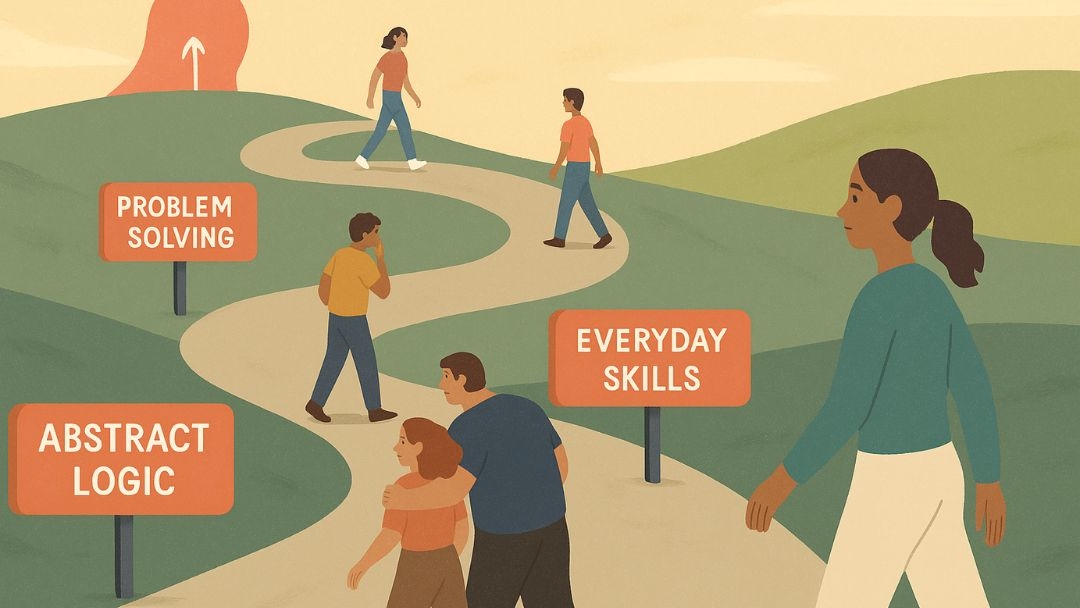
If you're wondering whether you might have a low IQ—or you're simply trying to understand how lower intelligence may affect day-to-day life—you’re not alone. IQ scores don’t tell the full story of a person’s abilities, but they can highlight patterns of cognitive challenges that show up in school, work, relationships, and decision-making.
Many of the signs below are more common in people with low IQ scores or lower analytical intelligence. However, they should always be considered alongside personal strengths, environment, and support systems.
1. Difficulty Thinking Outside the Box
People with low IQ may find it hard to think creatively or approach problems from new angles. If you're used to solving problems one way, you might struggle to adapt when that method no longer works. This is often linked to lower creative intelligence, which involves innovation and mental flexibility.
2. Limited Vocabulary and Language Skills
Individuals with lower intelligence often have a restricted language proficiency, more limited vocabulary, and may struggle to express themselves clearly in writing or conversation. This can affect how well you follow instructions, engage in complex discussions, or absorb written information. These challenges often reflect lower linguistic intelligence, which overlaps with IQ's verbal reasoning components and verbal IQ scores.
3. Consistently Low Academic Performance
People with low IQ tend to have difficulty in traditional academic settings, especially with subjects like math, science, or reading comprehension. Even with effort, they may take longer to grasp core concepts. These patterns typically indicate lower analytical intelligence, which is what most IQ tests are designed to measure.
Research also shows that individuals with lower IQ scores are statistically less likely to finish high school, often due to ongoing academic struggles and limited support. That said, many people with low IQs do graduate—especially when given the right accommodations and encouragement. Finishing high school may be harder, but it’s far from impossible.
4. Trouble Understanding Consequences
If you have lower practical intelligence or a low IQ, you might act impulsively and struggle to connect today’s choices with future outcomes. This could look like spending money without budgeting, skipping responsibilities, or making risky decisions without thinking things through.
5. Poor Judgment and Decision-Making
People with low IQ scores may repeatedly make choices that lead to negative consequences, even after similar outcomes in the past. This could include staying in unhealthy relationships, quitting jobs impulsively, or trusting unreliable people. These patterns are often tied to lower practical intelligence, which deals with real-world problem solving.
6. Difficulty with Daily Tasks
If your IQ is on the lower side, managing basic responsibilities like time, finances, or household routines can feel overwhelming. You may miss appointments, forget tasks, or struggle to keep things organized, which can lead to avoidable stress or tension with others.
7. Struggles with Multi-Step or Complex Tasks
People with low IQ may feel lost when trying to plan a trip, organize a project, or follow multi-part instructions. These situations require memory, sequencing, and critical thinking—areas that often challenge individuals with lower cognitive functioning.
8. Lack of Self-Awareness
You might have trouble recognizing your own strengths and weaknesses or understanding how your behavior affects others. This can lead to confusion or defensiveness when receiving feedback. Lower IQ is sometimes linked to this kind of limited self-reflection, though emotional intelligence and social experience also play a role.
9. Overly Emotional Reactions
People with lower intelligence may struggle with emotional regulation, reacting with intense anger, sadness, or frustration to relatively small issues. While emotions are part of being human, difficulty managing them can interfere with relationships, work, and mental well-being.
Important Note: These signs are not a checklist for diagnosing low IQ. Many people experience these challenges for other reasons, such as learning differences, trauma, or mental health conditions. If you're concerned about your cognitive abilities, the best step is to seek a professional evaluation that considers your full profile, including areas of strength and growth.
10 Myths About Low IQ: What It Really Means—And What It Doesn’t
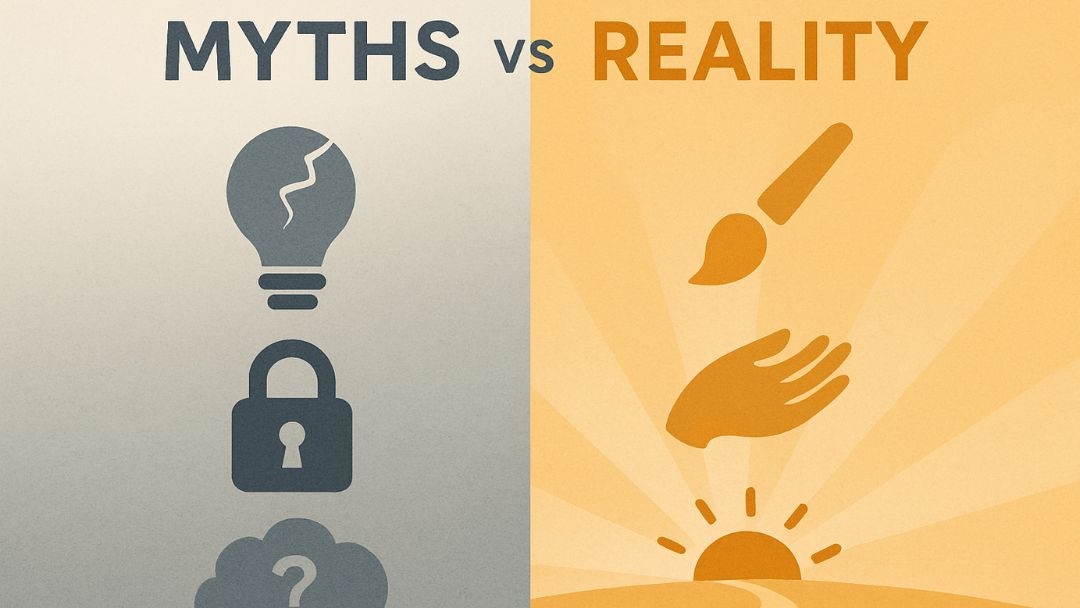
There are a lot of misconceptions about what it means to have low intelligence. Some are based on outdated terms, while others come from stereotypes that simply aren’t true. Let’s break down some of the most common myths—and what the reality actually looks like.
Myth 1: People With Low IQs Are Just “Dumb.”
Words like “dumb” and “stupid” get tossed around far too easily—but they’re often based more on stereotypes than reality.
Having a low IQ doesn’t mean someone is lazy, clueless, or lacking in value. Everyone makes mistakes, and even people with very high IQs can make poor choices, overlook common sense, or act impulsively. Intelligence is just one factor in how people think, learn, and make decisions.
Kim Kardashian is a prime example of this stereotype in action. She’s often been portrayed as lacking substance or intellect—but in reality, she has a high IQ and has demonstrated sharp business acumen, legal ambition, and social influence. Her story highlights how public perception often fails to reflect someone’s true intelligence.
Calling someone “dumb” based on an IQ score—or any surface-level trait—ignores their effort, background, personality, and potential. It’s not just hurtful—it’s wrong.
Myth 2: A Low IQ Means You’re Mentally Retarded.
This is not true, and the term itself is now considered outdated and offensive. While people used to use “mentally retarded” as a catch-all label for anyone with a low IQ, it's no longer medically accurate and has caused harm by oversimplifying a complex issue.
In reality, someone can have a low IQ without meeting the criteria for an intellectual disability. A formal diagnosis of intellectual disability (previously called “mental retardation”) requires both a low IQ and significant difficulties with everyday adaptive functioning, such as communication, social skills, and daily living tasks. These challenges must also begin before the age of 18.
By contrast, many people with low IQs live independently, work regular jobs, and lead fulfilling lives. A low score doesn't automatically mean a person needs lifelong care—it simply means they may face more difficulty in areas like reasoning, problem-solving, or academic learning.
Myth 3: If You Don’t Have “Book Smarts,” You Must Have a Low IQ.
There’s a common assumption that struggling in school means someone has a low IQ. But poor academic performance can be caused by many factors—including undiagnosed ADHD, learning disabilities, unstable home life, or even lack of access to quality education.
Traditional schooling often emphasizes analytical intelligence and structured thinking, which are only one part of the bigger picture. People who are neurodivergent, such as those with ADHD, autism, or processing disorders, may approach problems or absorb information in ways that don’t align with standard academic models. This can impact test performance or classroom behavior, but it doesn’t mean they’re not capable of learning, thinking deeply, or succeeding in other ways.
Having difficulty with “book smarts” doesn’t automatically mean you have a low IQ—and it certainly doesn’t mean you lack intelligence.
Myth 4: If You Have a Learning Disability, You Must Have Low Intelligence.
This is a widespread misunderstanding. While learning disabilities like dyslexia, ADHD, or dyscalculia can affect how someone reads, focuses, or processes certain types of information, they don’t reflect overall intelligence.
In fact, many people with learning disabilities have average or even high IQ scores. Elon Musk, who has publicly shared that he's on the autism spectrum, is one example of how neurodivergence can coexist with extraordinary intelligence. These individuals may simply learn in nontraditional ways or need different types of support to succeed in school or work environments.
Assuming someone with a learning disability isn’t smart overlooks their potential—and can prevent them from getting the right kind of help. IQ and learning differences are two separate things.
Myth 5: If You Come From a Low-Income or Rural Background, You Must Not Be Smart.
There’s a harmful stereotype that people from poor families or rural areas aren’t intelligent. This myth confuses opportunity with ability.
Many people grow up without access to quality schools, stable housing, or strong support systems. These conditions can affect test scores, academic confidence, and even how intelligence is expressed, but they don’t reflect someone’s true cognitive potential.
Take JD Vance, for example. Raised in a working-class Appalachian family with a turbulent home life, he went on to graduate from Yale Law School, serve in the U.S. Senate, and is now Vice President. His story challenges the idea that intelligence is determined by where you're from—instead, it highlights how much potential can be unlocked with the right support, drive, and opportunity.
Numerous people from under-resourced backgrounds have gone on to become authors, CEOs, inventors, and more. Intelligence doesn’t belong to any one social class—and poverty is not a reflection of someone’s intellectual ability.
Myth 6: People With Low IQs Are All the Same.
This myth couldn’t be further from the truth. People with low IQ scores are not the “same person” repeated across different bodies. They have unique personalities, talents, interests, and emotional worlds—just like anyone else.
Assuming that everyone with a low IQ acts or thinks the same way oversimplifies human experience. Cognitive ability is just one aspect of a person’s identity, not the whole picture.
Myth 7: A Low IQ Means You Can’t Be Successful.
Success looks different for everyone, and people with low IQs are capable of achieving personal and professional goals. In fact, many individuals with lower IQ scores find success in hands-on fields, creative work, or entrepreneurial ventures that don’t rely heavily on academic testing.
Plenty of people who have struggled in school have gone on to build careers, raise families, and contribute meaningfully to their communities. IQ doesn’t measure things like determination, emotional intelligence, creativity, or resilience—all of which play a big role in success.
Myth 8: Low IQ Is Linked to Criminal Behavior.
There’s a damaging stereotype that people with low intelligence are more likely to break the law. The reality is much more nuanced.
While some studies have shown a statistical link between lower IQ scores and certain risk factors (like poverty, trauma, or lack of education), these issues are not caused by IQ. Many people with low IQs are kind, law-abiding, and deeply moral. Crime is influenced by a wide range of social, environmental, and psychological factors—not just cognitive ability.
Myth 9: If You Have a Low IQ, You Must Have Mental Health Issues.
Mental health and IQ are not the same thing. Someone with a low IQ might struggle with certain cognitive tasks, but that doesn’t automatically mean they have depression, anxiety, or other psychiatric conditions.
That said, people with lower intelligence may feel frustrated, excluded, or overwhelmed—especially if they haven’t received support or understanding from others. These experiences can sometimes lead to emotional challenges, but they are not caused by IQ itself.
Myth 10: Low IQ Means You Lack “Street Smarts”.
Many people confuse IQ with practical, real-world intelligence. But someone with a low IQ can still be socially savvy, resourceful, and skilled at navigating everyday challenges—what psychologists refer to as practical intelligence, which traditional IQ tests don’t always capture.
In fact, some people with high IQs struggle with common sense or real-world decision-making, while others with lower IQs have strong instincts, people skills, or hands-on expertise.
Myth 11: Intelligence Quotient Is the Only Way to Measure How Smart You Are
This is perhaps the biggest myth of them all.
IQ tests are designed to measure a specific type of intelligence—mainly analytical and problem-solving skills— and are often used in academic settings. But intelligence is far more complex than one number can show.
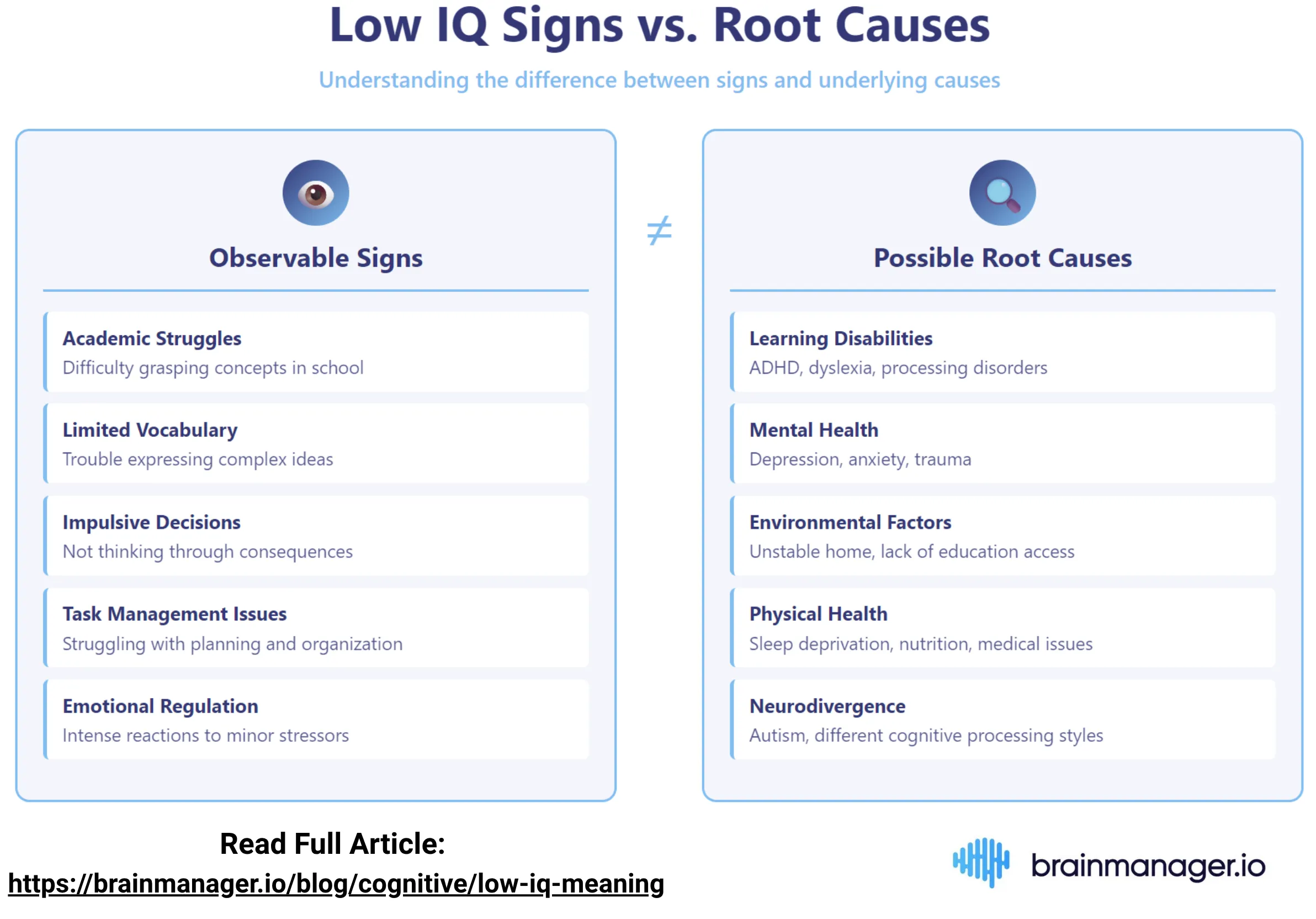
Psychologists like Robert Sternberg and Howard Gardner have proposed broader models of intelligence. Sternberg described intelligence in three categories: analytical, creative, and practical. Gardner outlined at least eight types of intelligence, including linguistic, spatial, musical, intrapersonal, and others.
Take Mike Tyson, for example. As a child, he reportedly scored low on an IQ test and struggled in school. But in the boxing ring—and later in life through self-reflection and public speaking—he’s shown exceptional bodily-kinesthetic and interpersonal intelligence. His story reminds us that raw talent, emotional insight, and real-world adaptability aren’t measured by a traditional IQ score.
That means someone who doesn’t test well on an IQ exam might still be brilliant at reading people, building things, making music, or solving real-world problems.
IQ scores can be useful in certain contexts, but they don’t capture emotional intelligence, resilience, social insight, or creative thinking. Intelligence isn’t one-dimensional, and it certainly isn’t one-size-fits-all.
Conclusion: Having a Low IQ Doesn't Define Your Story
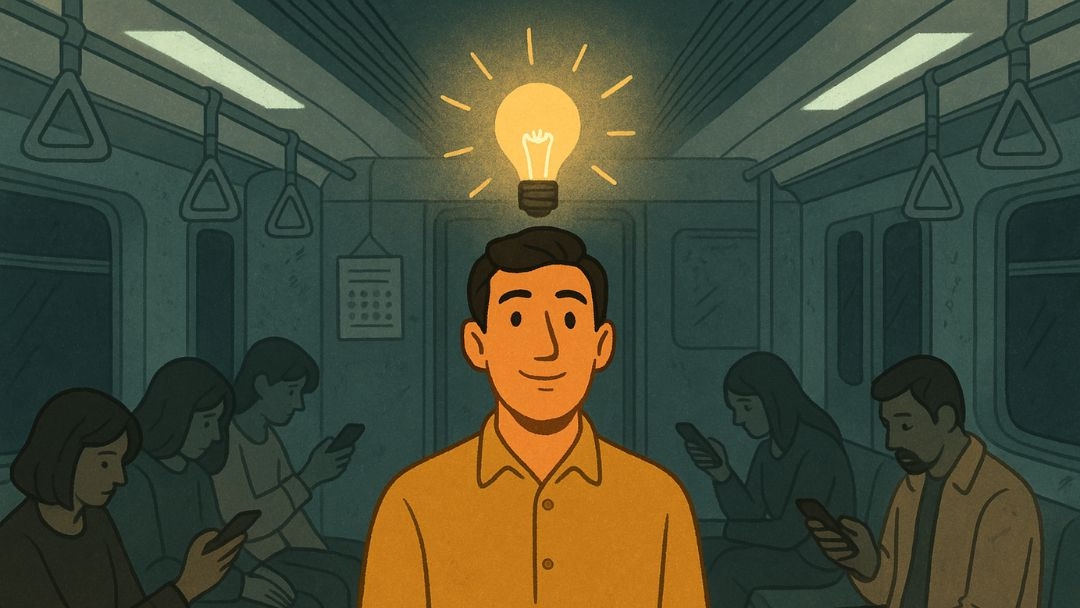
IQ measures general intelligence—your ability to reason, solve problems, and process information. But general general intelligence is only one part of what makes someone capable, interesting, or successful.
People with low IQ scores can and do go on to build meaningful careers, strong relationships, and fulfilling lives. And plenty of people with high IQs struggle in areas that aren’t measured by a test—like emotional regulation, adaptability, or common sense.
That’s because real-world success depends on so much more than abstract reasoning. It also takes support, effort, self-awareness, and the right environment.
So if you’ve ever been made to feel like a number defines your potential, know this: IQ isn’t your destiny. It’s just one data point in a much bigger story.
And it’s a story you’re still writing.


Return to Blog
